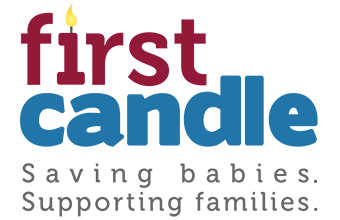Maybe you are one of the many people trying for another baby soon after a stillbirth death. It’s natural: you want to fill your empty heart. Yet you may feel frightened that it will happen again. You will need to figure out how long to wait and what seems right for you. For many parents, the thought of having another baby brings comfort. Others say that they feel they are betraying their baby who has died. The right time to embark on this will vary depending on your individual circumstances. Trust yourself. When a baby dies, well-intentioned people sometimes try to persuade parents that having another baby as soon as possible is the only answer to accepting that death. If you had infertility problems or other losses, it may seem especially cruel. Rather strong attempts may sometimes be made to convince you that healing can only be accomplished this way. But healing is actually nothing more than incorporating an event into your life in a way that enables you to live with it in an appropriate fashion. Doing that takes time. You cannot necessarily speed up the process of healing by having or not having another baby.
The Decision Not To
If you decide not to have another baby and that decision is based upon your own reasons, be secure with the fact that this decision is right for you. If you decide not to have another baby, but you think this decision is based more on fear than on practical considerations, do not hesitate to seek some counseling. You will not be the first or the last person to experience this feeling.
The Decision To
When you decide you are ready to consider another pregnancy, be sure to talk with your doctor first. He or she will be able to reassure you that your body is ready for another pregnancy and address any necessary precautions. When you do become pregnant, you will probably be a little nervous and excited as well as afraid. It is hard to be patient. It’s also unfair to have to wait and go through this all again. The pregnancy can seem to last forever and it may be hard to believe that a death won’t happen again. Building a good support system can really help. Talk with your doctor or another health professional. You can also contact First Candle. Speaking with other bereaved parents who have had subsequent pregnancies may help. Search within your group of relatives and friends for people who will listen to your fears and not give you lots of unsolicited advice. Reviewing the facts about stillbirth deaths and reducing the risks may also be reassuring. The most uncomfortable period will be the point when your pregnancy nears the time of the pregnancy of when your baby died. It is one of those milestones that must be reached and passed. After it is, most parents report that their moments of uneasiness start to decrease. Most of all, be assured that you are not the only person to experience this discomfort or panic. Nearly everyone does. You can only do your best in finding ways to handle it. If you find that you are feeling uneasy most of the time, be sure to consult your doctor or other health professional.
The “Subsequent Pregnancy”
For lack of a better term, your next pregnancy may be referred to as the “subsequent pregnancy.” This new baby is indeed a very special one, to you and to everyone else. The pregnancy and birth of a subsequent baby can be an overwhelming emotional experience. When you see and hold your new baby for the first time, you may find that difficult memories come flooding back and intermingle with the pleasure you are feeling. The moment can be a mixture of great joy and intense pain. Many parents have weathered the crisis, panic and great joy of their subsequent baby’s pregnancy and birth. They acknowledge that while it was not always easy and they had to work at handling their emotions, their effort was rewarded by one of the most wonderful periods in their lives.

